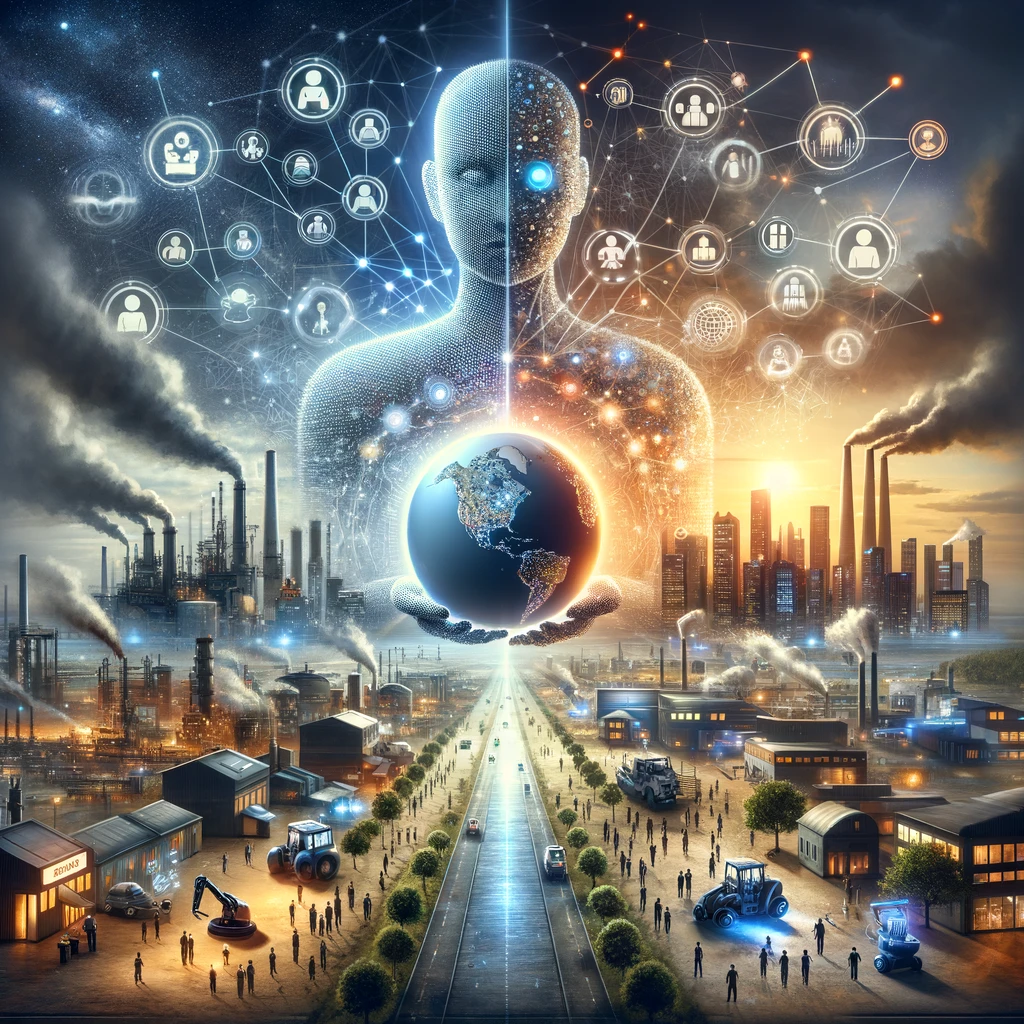Artificial Intelligence and its Impact on Global Employment Trends
Needed

 440
440 
Artificial Intelligence and its Impact on Global Employment Trends
Artificial Intelligence (AI) is one of the most revolutionary and influential technologies of our time. With accelerated advancements in areas such as machine learning, computer vision, and natural language processing, AI is transforming the landscape of work across various fields of life. Its impact on the global job market is expected to be tremendous, with far-reaching effects on job structures, required skills, and career opportunities. Let us delve deeper into some of the key trends.
Automation of Routine Tasks
One of the most prominent effects of AI on employment is the increasing automation of routine and repetitive tasks. Smart algorithms are capable of replacing human workers in a variety of roles, from technical support and customer service to data processing and financial analysis. According to estimates from the research firm Gartner, by 2025 more than half of the tasks in "white-collar" jobs will be performed by machines. Although this process may lead to a decrease in demand for certain roles, it is also expected to free workers for more complex and higher-value tasks.
Emergence of New Jobs
Despite concerns about "job theft" by machines, the emergence of AI technologies is also expected to lead to the creation of entirely new roles. For instance, there will be a demand for specialists in training and monitoring AI systems, ethics and regulation of algorithms, marketing and explaining innovative technologies, and more. According to a report by the World Economic Forum, 85 million new jobs may be created as a result of AI by 2025, far exceeding the number of jobs that will be eliminated. However, workers will need to adapt their skills and acquire new knowledge to take advantage of these opportunities.
Rising Demand for Soft Skills
As machines perform more routine and technical tasks, the demand for interpersonal and creative skills known as "soft skills" is expected to rise. Skills such as complex problem-solving, critical thinking, communication, empathy, and teamwork will be critical in a rapidly changing work environment. According to research by LinkedIn Learning, the soft skills most in demand by employers include creativity, persuasion, collaboration, cognitive flexibility, and time management. Educational and vocational training systems will need to adapt to equip students not only with technical knowledge but also the interpersonal skills required for future jobs.
Changes in Traditional Employment Models
AI technology also enables structural changes in the traditional employment model. With the automation of more tasks and remote work options, the concepts of "job" and "workplace" are undergoing transformation. Instead of eight hours in an office, more workers will transition to a project or contract-based model. Models like the Gig Economy and Freelancing are expected to expand significantly, providing more flexibility and independence for workers. According to a report by Upwork and the Freelancers Union, by 2027 most of the workforce in the U.S. will be freelancers. This will require adjustments to social protection systems, health insurance, and workers' rights to match the new reality.
Global Implications
The impact of AI on job offers and the job market is not limited to a specific country or region - it will be global and profound. With increasing labor mobility and international supply chains, changes in one country will affect all markets. A study by the World Bank found that by 2030, 375 million workers worldwide - about 14% of the global workforce - will need to change occupations due to AI-based automation. The impact will be particularly strong in developing countries with a high concentration of routine work, such as India and China. Countries and international institutions will need to cooperate in addressing the challenges, investing in retraining workers and creating social safety nets.
How to Prepare for the Future?
While the growth of artificial intelligence presents challenges and transformations for the job market, it also holds tremendous opportunities for growth and economic prosperity. To be prepared for the future, individuals, organizations, and governments must take action on several fronts:
- Investment in Education and Retraining: Education systems must undergo a fundamental change to prepare students for future jobs, which require flexibility, creativity, and innovation. Meanwhile, companies and governments need to invest in retraining and continuing education programs to enable workers to transition their careers according to technological developments.
- Organizational Flexibility: Organizations that adopt flexible and innovative structures and processes, where human intelligence and artificial intelligence complement each other, will be the ones to succeed in the new world of work. Companies should start thinking now about the best ways to integrate AI into their teams.
- Social Safety Net: The transition to AI-intensive jobs will require changes in social security systems, including transition benefits, health insurance, and vocational training. Ideas such as universal basic income should be re-examined to maintain the welfare of workers in an era of rapid changes.
- Ethical Thinking and Regulation: We must ensure that the development and implementation of AI in the job market is done responsibly, transparently, and fairly. Clear ethical guidelines, oversight of algorithms to prevent bias, and protection of workers' privacy and safety are essential.
In conclusion, AI is a powerful force that is reshaping our world of employment and careers. If we manage this transition correctly, it can lead to a new era of development, creativity, and accelerated economic prosperity. However, we will need to work hard to ensure that the benefits are distributed fairly throughout society, and that technology improves the quality of life for everyone. The success of AI in the job market depends on our ability to adapt to it and to leverage its immense potential.
The challenge ahead is to harness machine intelligence for the benefit of humanity while preserving what makes us special - creativity, empathy, and courage. Through collaboration between sectors and areas of knowledge, we can ensure that the next technological revolution is also a revolution of growth, prosperity, and new opportunities for everyone.






